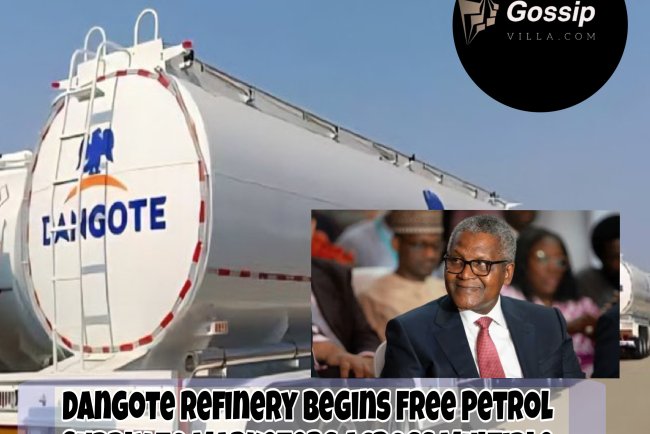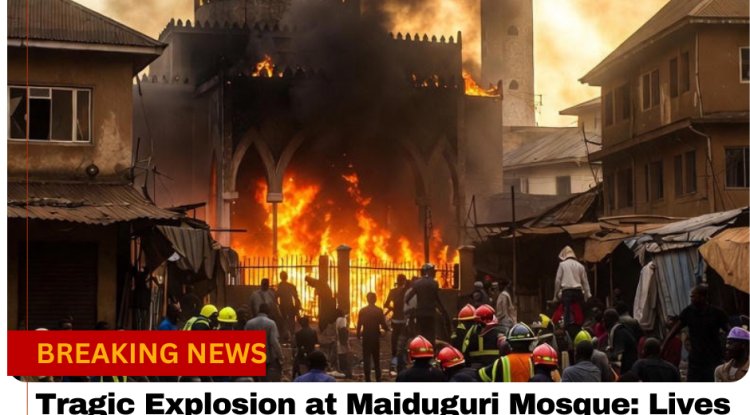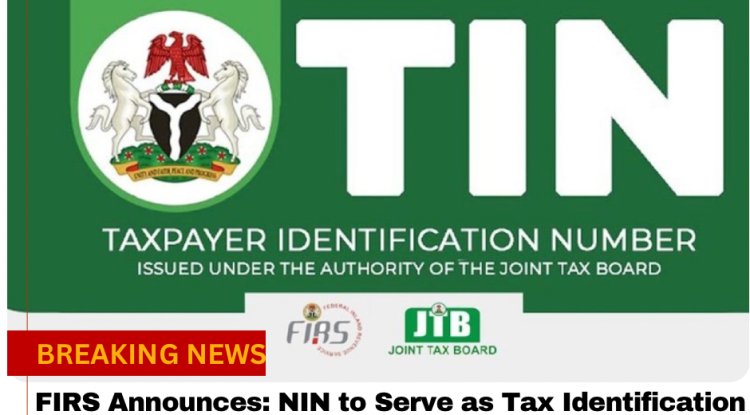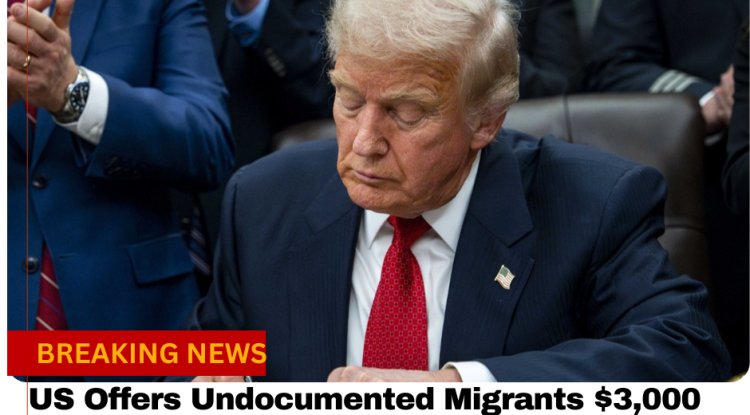Dangote Refinery’s Naira Petrol Pause Sparks Price Hike Fears, Swiftly Reversed by Government Action
Nigeria’s Dangote Refinery briefly suspended naira-based sales of Premium Motor Spirit (PMS) on September 27, 2025, due to exhausted crude-for-naira allocations, sparking fears of nationwide fuel price hikes as marketers announced increases from N865–N910 per litre. The government’s swift intervention via the Naira for Crude Technical Committee prompted an immediate resumption of naira sales, averting the crisis and stabilizing pump prices.
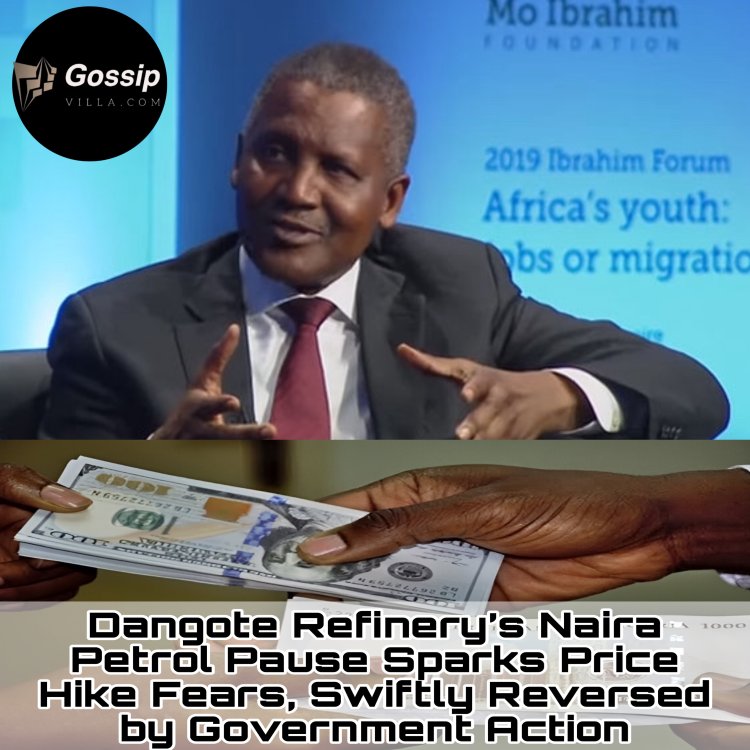
Dangote Refinery’s Naira Petrol Pause Sparks Price Hike Fears, Swiftly Reversed by Government Action
In a move that’s sending ripples through Nigeria’s already volatile fuel market, the Dangote Petroleum Refinery has announced the suspension of petrol sales in the local naira currency, effective today, September 28, 2025. The refinery cited the exhaustion of its crude oil allocations priced in naira as the primary reason, stating that it can no longer sustain sales in the domestic currency without further allocations. This development comes just months after the refinery’s much-hyped launch, which promised to end Nigeria’s dependence on fuel imports and stabilize prices.
For those unfamiliar, the Dangote Refinery, with its impressive 650,000 barrels per day capacity, was designed to be a game-changer for Africa’s largest economy. Commissioned in May 2023 by President Bola Tinubu, it represents a $19 billion investment by billionaire Aliko Dangote aimed at boosting local refining and curbing the billions of dollars spent annually on imported refined products. Under a special “crude-for-naira” swap arrangement with the Nigerian National Petroleum Company Limited (NNPC), the refinery has been receiving crude oil priced in naira, allowing it to sell Premium Motor Spirit (PMS), commonly known as petrol, to local marketers in the same currency. This mechanism was intended to ease pressure on Nigeria’s foreign exchange reserves, which have been battered by a naira devaluation and inflation hovering above 20%.
The main Reasons for suspension
In a memo circulated to customers on Friday, September 27, the refinery revealed that it had already sold petroleum products in excess of its naira-denominated crude allocations. “We have been selling petroleum products in excess of our naira-crude allocation, which is unsustainable,” the memo stated, as reported by multiple outlets. Customers with pending naira transactions were urged to request refunds, while future orders would shift to foreign exchange transactions. This suspension, though temporary in nature, has ignited concerns among fuel marketers, transporters, and everyday consumers who fear a spike in pump prices and renewed scarcity.
Potential impact on the market
The implications of this halt are profound. Nigeria, home to over 200 million people, relies heavily on petrol for transportation, power generation, and industrial operations. With fuel imports historically draining up to $10 billion annually from reserves, the Dangote Refinery was positioned as a panacea. Yet, this suspension could inadvertently reverse those gains by forcing marketers to source petrol in dollars, exacerbating the naira’s weakness – currently trading at around 1,600 to the dollar on the parallel market. Analysts warn that this could lead to higher retail prices, potentially pushing the cost of a 20-liter jerrycan from the current N15,000 to over N20,000 in black markets. Moreover, it underscores ongoing tensions in the oil sector, including disputes over crude supply quotas and the refinery’s pivot toward lucrative exports of diesel, naphtha, and fuel oil to Europe, West Africa, and even the United States.
This isn’t the first hiccup for the refinery. Earlier this year, in February 2025, a similar suspension occurred amid quality concerns raised by regulators, leading to a temporary halt in operations. That episode highlighted the teething problems of integrating a mega-project into Nigeria’s complex downstream sector, dominated by state-owned entities like NNPC. Fast-forward to now, and the refinery is grappling with internal challenges too. Just weeks ago, it underwent a major restructuring, laying off hundreds of Nigerian workers while retaining Indian expatriates, sparking backlash from labor unions like the Petroleum and Natural Gas Senior Staff Association of Nigeria (PENGASSAN). The union even threatened to ground operations, only for Dangote to push back, calling the demands “unrealistic.”
Swift Reversal and Government Intervention
But here’s the plot twist that has everyone breathing a sigh of relief: less than 24 hours after the announcement, the refinery reversed course. In a follow-up memo to marketers, Dangote Petroleum Refinery confirmed the resumption of naira-based petrol sales nationwide, thanks to swift intervention by the government’s Naira-for-Crude Technical Committee. This committee, established to facilitate the crude-for-naira scheme, brokered a resolution between the refinery and key regulators, ensuring continued allocations and stabilizing supply chains. Orders for both self-collection and free delivery are now being accepted in naira, averting what could have been a chaotic weekend at fuel stations.
This rapid turnaround speaks volumes about the delicate balance Nigeria must strike in its energy transition. On one hand, the Dangote Refinery has already begun reducing import bills – local production now covers about 30% of domestic demand, up from zero pre-launch. On the other, it exposes vulnerabilities in policy implementation, such as inconsistent crude supply and bureaucratic hurdles. Experts like Dr. Muda Yusuf, CEO of the Centre for the Promotion of Private Enterprise, argue that for the refinery to fulfill its promise, the government must expedite full operational licensing and guarantee steady feedstock. “The naira-for-crude model is innovative, but it needs robust enforcement to prevent such disruptions,” Yusuf noted in a recent interview.
Looking ahead, this episode could catalyze broader reforms. The Nigerian Midstream and Downstream Petroleum Regulatory Authority (NMDPRA) has hinted at audits to ensure equitable distribution, while calls grow for private refineries to receive preferential crude terms. For consumers, the immediate win is price stability – at least for now. But as Nigeria navigates global oil volatility, with Brent crude hovering around $80 per barrel, the refinery’s role in shielding the economy from shocks has never been more critical.
It serves as a reminder that building a self-sufficient energy sector is no small feat. It’s a story of ambition clashing with reality, but also of resilience. As Dangote himself often says, “If you don’t take risks, you can’t create a future.” For Nigeria, the future of fuel affordability hangs in that very balance.
Verified Sources:
What's Your Reaction?







